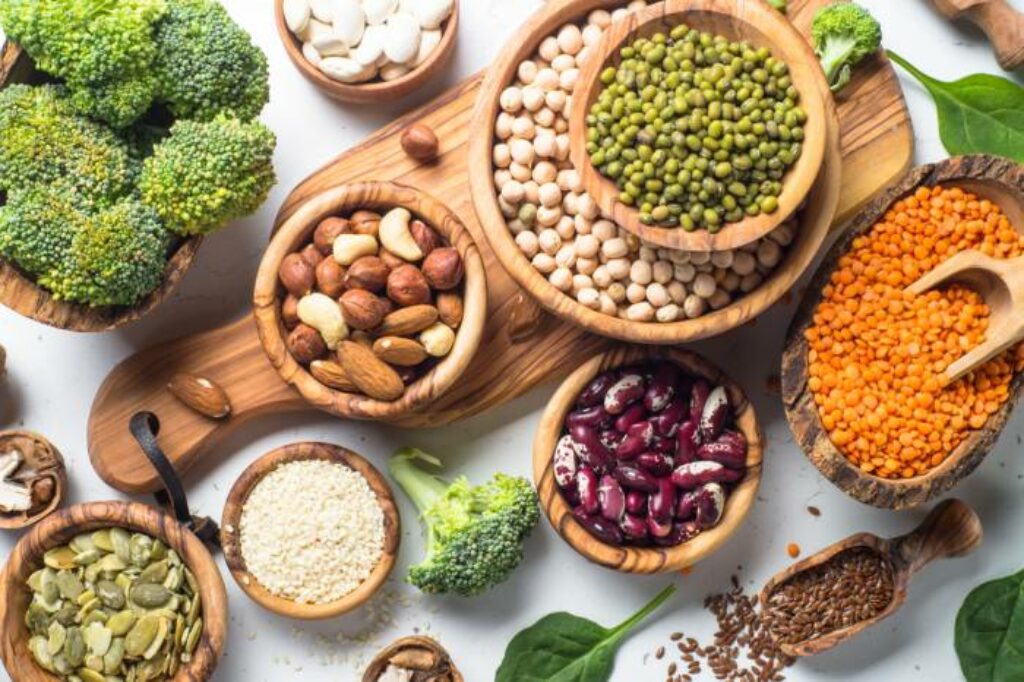
Benefits Of the Vegan Diet
How and what you eat has a great impact on your overall health and well-being. Some people even say that “you are what you eat”. Thus, there are many kinds of diets that address not just nutrition or weight loss, but overall lifestyle. One of the most famous of these is the Vegan diet.
Related Topics (Sponsored Ads):
The Vegan diet has gained significant popularity in recent years, driven by concerns about animal welfare, environmental sustainability, and personal health. This dietary approach excludes all animal-derived products, including meat, fish, dairy, eggs, and honey. Instead, it emphasizes plant-based foods such as fruits, vegetables, grains, legumes, nuts, and seeds. Below will be discussed the advantages and disadvantages of the Vegan Diet, as well as discuss who can benefit the most from adopting this lifestyle.

Understanding the Vegan Diet
The vegan diet centers around consuming plant-based foods such as fruits, vegetables, legumes, whole grains, nuts, and seeds. It avoids all animal-derived products and by-products. Vegans often prioritize obtaining essential nutrients like protein, iron, calcium, and omega-3 fatty acids from plant-based sources, ensuring a balanced and nutritious diet.
Advantages
Health benefits are one of the primary advantages of the Vegan Diet, with its potential to improve overall health. Plant-based diets tend to be rich in fiber, vitamins, minerals, and antioxidants while being low in saturated fat and cholesterol. Studies have shown that vegans often have lower risks of developing chronic diseases such as heart disease, type 2 diabetes, and certain types of cancer. Additionally, the high fiber content of plant-based foods can promote a healthy digestive system and reduce the risk of constipation.
Environmental Sustainability is another major advantage of this diet because of its positive impact on the environment. Animal agriculture is a significant contributor to greenhouse gas emissions, deforestation, and water pollution. By abstaining from animal products, vegans reduce their carbon footprint, conserve water resources, and help combat climate change. The Vegan Diet aligns with the principles of sustainability, making it an attractive choice for those concerned about environmental preservation.
Animal Welfare is of course a main motivation by avoiding any products derived from animals. By adopting a Vegan Diet, individuals choose to disengage from industries that often involve animal cruelty and unethical practices. This dietary choice promotes compassion and respect for all living beings, contributing to a more ethical and humane society.
Disadvantages
One of the main challenges of the Vegan Diet is the potential for nutritional deficiencies. Since certain nutrients like vitamin B12, iron, calcium, and omega-3 fatty acids are predominantly found in animal-derived products, vegans need to pay extra attention to their dietary choices to ensure adequate intake. Supplementation and careful planning are often necessary to prevent deficiencies and maintain optimal health.
Another type of deficiency can be that of protein. Protein is an essential macronutrient for overall health and muscle maintenance. While plant-based foods like legumes, tofu, tempeh, and seitan can provide sufficient protein, it may require more effort to obtain complete proteins from plant sources alone. Vegans need to diversify their protein sources and combine complementary plant proteins (such as beans and rice) to ensure they receive all essential amino acids.
Following a Vegan Diet can present social challenges, especially in cultures or communities where plant-based eating is not common. Vegans may face difficulties finding suitable options in social gatherings, restaurants, and even within their own families. Navigating these situations may require planning ahead, effective communication, and a willingness to compromise or bring their own food.
Who Benefits from the Vegan Diet?
1. Ethical Advocates: For individuals who prioritize animal welfare and are deeply committed to reducing harm towards animals, this diet offers a means to align their dietary choices with their values. By excluding animal products entirely, ethical advocates can actively participate in the fight against animal cruelty.
2. Environmental Activists: The Vegan Diet provides an opportunity for environmental activists to take a personal stance against climate change. By reducing their reliance on animal agriculture, they contribute to the preservation of natural resources, reduction of greenhouse gas emissions, and the protection of biodiversity.
3. Individuals Seeking Health Improvements: People aiming to improve their health and reduce the risk of chronic diseases can benefit. The abundance of fruits, vegetables, whole grains, and plant-based proteins can support weight management, lower cholesterol levels, and improve overall cardiovascular health. Additionally, the high fiber content of plant-based foods can aid digestion and promote a healthy gut microbiome.
4. Those with Lactose Intolerance or Dairy Allergies: Individuals who are lactose intolerant or have dairy allergies can greatly benefit from adopting this diet. By eliminating dairy products, they can avoid the discomfort and digestive issues associated with lactose consumption. The Vegan Diet provides alternative sources of calcium, such as leafy greens, fortified plant-based milks, and calcium-set tofu.
5. Allergy Sufferers: Some individuals may have allergies or sensitivities to certain animal proteins or by-products. For those experiencing adverse reactions to meat, eggs, or dairy, switching to a Vegan Diet can alleviate symptoms and improve their overall well-being.
6. Those Seeking Variety in Their Food: Encourages individuals to explore a wide range of plant-based foods, leading to increased culinary creativity and dietary variety. It opens up opportunities to discover new flavors, experiment with different cooking techniques, and embrace diverse cultural cuisines.
7. Personal Growth Advocates: Adopting this lifestyle requires commitment, planning, and conscious decision-making. Individuals seeking personal growth, self-discipline, and the challenge of embracing a lifestyle that promotes sustainability and compassion may find the Vegan Diet to be a rewarding journey.
Final Thoughts
As with any dietary choice, it is essential to consult with healthcare professionals or registered dietitians to ensure proper nutrition and address individual needs and circumstances.




